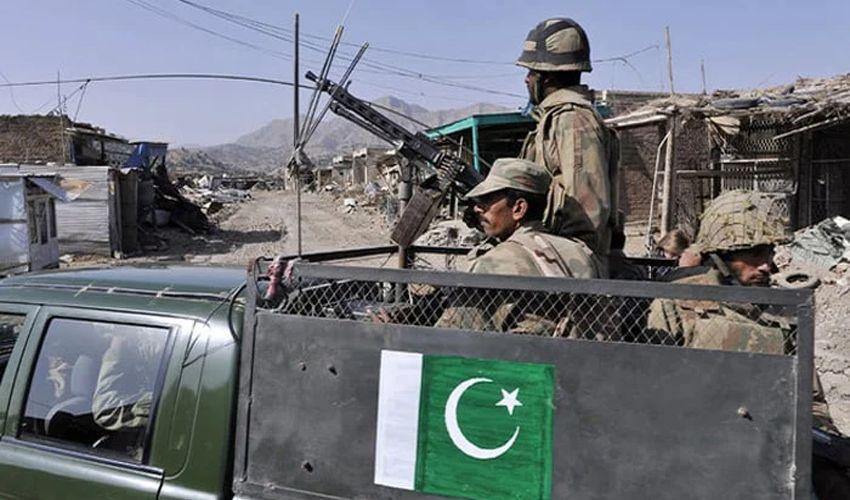Bilawal seeks ‘urgent’ support for 50 crises-hit developing nations
The foreign minister highlights the flood devastation in Pakistan while chairing G77 and China at the UN

Foreign Minister Bilawal Bhutto Zardari Friday called for urgent support to more than 50 developing countries that have suffered disproportionately from shocks such as the Covid-19 pandemic, rising commodity prices, conflict proliferation, and the adverse impacts of climate change, as he highlighted the flood devastation in Pakistan.
“Our countries and peoples confront monumental challenges; we need to change the policies and structures that perpetuate inequality and poverty,” Foreign Minister Bilawal said while presiding over a ministerial meeting of the Group of 77 (developing countries) and China.
Pakistan is the current chairman of G-77 and China, which now has 134 members and is the United Nations’ biggest inter-governmental group of emerging countries.
At the outset, FM Bilawal thanked all members of the Group for their “trust and cooperation” with Pakistan as the Group’s chairman during the current year.
Dealing with the difficult times facing the developing countries, the foreign minister said in his presidential address, “Our challenges have been exacerbated by a deficit in solidarity from our developed country ‘partners’.”
“As a consequence,” he said, “we now face the triple interlocking crises of food, fuel and finance.”
In this regard, FM Bilawal called for larger ODA (official development assistance) and concessional finance.
“We welcome the proposal (of the UN Secretary-General) for a ‘SDG (sustainable development goals) stimulus’ of $500 billion to enable those countries which are in extreme economic distress to revive their economies and development objectives.”
He also called for providing emergency food supplies through the WFP (Word Food Programme) to the 250 million people in food distress; further moderate prices by enlarging food production and supplies; and support small farmers access to seeds, fertilizer and finance.
Ensuring the availability of energy, especially gas, for the developing countries and exploring mechanisms to reduce the financial burden of imports would also help, he said, while calling for mobilization of the universal availability of Covid-19 vaccines and treatments.
Urgent and adequate assistance to the countries suffering from the impacts of climate change was also necessary, he said.
“Pakistan emits less than 1% of global greenhouse gas emissions; yet, it is now the epicenter of the impacts of climate change,” the foreign minister said, pointing out that one-third of the country – an area the size of the United Kingdom – was under water.
“A thousand people were killed and thousands more injured; 33 million have been affected and 6 million are absolutely destitute. Over a million homes, 7,000 kilometers of roads, 350 bridges and 5 million acres of crops, have been destroyed. The total damage is estimated at over $20 billion, almost 7% of Pakistan’s GDP (gross domestic product).
“The entire Pakistani nation – government, armed forces and common people – has rallied to provide relief to their compatriots in need,” he said, thanking Pakistan’s friends, including members of the Group of 77 & China, for the generous support they had provided.
“We are confident that their support will be sustained as Pakistan moves to the daunting task of rehabilitation and reconstruction.”
Beyond the emergency actions outlined by him, FM Bilawal said there was need for changing global structures and policies which could end inequity and inequality.
In this connection, he called for sustainable management of sovereign debt, larger concessional finance, issuance of additional SDRs (sustainable development goals), and reducing borrowing costs for developing countries.
There was need for mobilizing a $1 trillion annually as investment in sustainable infrastructure (energy, transport, housing, industry, agriculture), he stressed.
“We must fully and faithfully implement the climate change agenda in accordance with the principle of common but differentiated responsibility.”
He said the international trade system should be restructured to contribute to achievement of the SDGs through export-led growth in the developing countries, and a fair international tax regime inducted, along with an international technology agreement aligned with the SDGs.
In conclusion, the foreign minister said, “We will not secure either without mutual support, solidarity and unity. Let this – mutual support, solidarity and unity – become our guiding principles as we endeavour to build a better and prosperous tomorrow for our peoples.”
SOURCE: APP
Renowned TikToker Khaby Lame performs Umrah
- 36 minutes ago
PM Shehbaz constitutes negotiation committee for talks with PTI
- 3 hours ago

Sigourney Weaver makes West End debut in ‘The Tempest’
- 19 hours ago

Green Shirts face South Africa in third ODI today
- 3 hours ago
PM orders strict action against tax defaulters, pushes for FBR digitisation
- 21 hours ago

Six terrorists killed, 16 security personnel martyred in South Waziristan face-off
- 3 hours ago







